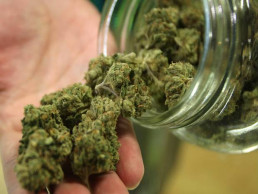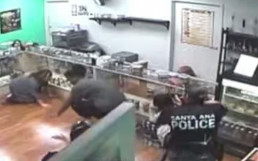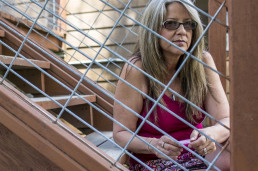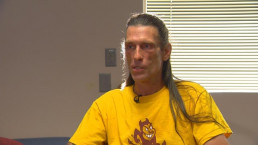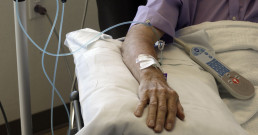U.S.A Government: Cannabis Kills Cancer
U.S.A Government: Cannabis Kills Cancer
According to an update on the website for the National Cancer Institute(NCI), the US Government is now acknowledging that cannabis kills cancer cells. After decades of science-defying denial, the US government has accepted the research that supports medical cannabis for cancer.
The Telegraph reported that the update will provide “further ammunition for pro-legalization campaigners.” The acknowledgment of the evidence is a great step, however, the NCI still claims more evidence is needed.
The National Cancer Institute’s website lists the anti-tumor activity recorded in preclinical trials. The update reports “Studies in mice and rats have shown that cannabinoids may inhibit tumor growth by causing cell death, blocking cell growth, and blocking the development of blood vessels needed by tumors to grow. Laboratory and animal studies have shown that cannabinoids may be able to kill cancer cells while protecting normal cells.”
Going further, the NCI also acknowledges the importance of CBD for chemo treatment. The report adds “A laboratory study of cannabidiol (CBD) in human glioma cells showed that when given along with chemotherapy, CBD may make chemotherapy more effective and increase cancer cell death without harming normal cells. Studies in mouse models of cancer showed that CBD together with delta-9-THC may make chemotherapy such as temozolomide more effective.”
Similarly, the NCI also found THC effective. “A laboratory study of delta-9-THC in hepatocellular carcinoma (liver cancer) cells showed that it damaged or killed the cancer cells. The same study of delta-9-THC in mouse models of liver cancer showed that it had antitumor effects. Delta-9-THC has been shown to cause these effects by acting on molecules that may also be found in non-small cell lung cancer cells and breast cancer cells.”
The institute also found that CBD and THC can work together. “A laboratory study of cannabidiol (CBD) in human glioma cells showed that when given along with chemotherapy, CBD may make chemotherapy more effective and increase cancer cell death without harming normal cells. Studies in mouse models of cancer showed that CBD together with delta-9-THC may make chemotherapy such as temozolomide more effective.” The website also lists other uses including benefits for colon cancer and breast cancer.
It’s certainly nothing new for medical cannabis activists. Last April, the data was preceded by research from the National Institute on Drug Abuse. The NIDA recognizes that “marijuana can kill certain cancer cells and reduce the size of others.”
The NIC has a $1.4 billion budget. Most of that money is wasted on drug addiction research. Whether it’s because of big pharma influence or public interest, the US government is now interested in the development of medical cannabis. The statement is exciting because the NCI has spent most of its time promoting the negative image of cannabis. It’s time we ask ourselves which is more dangerous for cancer patients- using cannabis or NOT using cannabis.
Police Will Face Charges After Consuming Medibles During Raid
Police Will Face Charges After Consuming Medibles During Raid
At least three Santa Ana Police officers allegedly did partake of medibles during a dispensary raid at Sky High Holistic. After failed attempts from the Santa Ana Police Department to hide a surveillance video, an Orange County Judge ruled that the video can and will be used. The video shows at least three cops eating cannabis edibles in the shop without doctor’s recommendations and needlessly taunting patients that were present.
The Santa Ana Police Officers Association recently filed a restraining order to block the video from being used against them. August 19, Superior Court Ronald Bauer rejected the restraining order citing “no objectively reasonable expectation” for excluding the video. “[The officers] should not expect privacy in their on-duty performance of an official function at a marijuana dispensary,” Bauer ruled. “They have made no claim that their work required secrecy or that it would be impeded by public view.” The ruling will cause irreparable harm to the reputations of the officers involved.
Matthew Pappas, the dispensary’s attorney, says the ruling is a major breakthrough for their lawsuit. Pappas told Huff Post “This ruling shows that the court had the courage to say ‘no’ to a very powerful police officer union and stand up for the rights of people when bad things like this happen.” Pappas was the one responsible who leaked the footage to the media in the first place. Pappas noted the police force disabling what they thought were all the cameras.
The SAPD claims the use of the hidden camera is a violation of their privacy. “Without the illegal recordings, there would have been no internal investigation of any officer,” SAPD attorney Cory Glave told the OC Register. Santa Ana Police Union president John Franks declined to comment when contacted by the OC Register. No word yet on why the recordings are being called illegal.“They can’t hide behind these types of laws to prevent themselves from being held accountable for their behavior,” Pappas added.
Pappas alleges that other undisclosed dispensaries in Santa Ana paid the Santa Ana Police Department $25,000 to guarantee they wouldn’t be bothered. Pappas also fingered Santa Ana mayor Miguel Pulido of accepting bribes. Pulido told the LA Times “Let me just state on the record, the allegations are unequivocally and categorically false… To allege there was some influence of the lottery and therefore it’s unfair is absolutely false.
Sky High Holistic’s multi-million dollar lawsuit reads “Prior to the November 2014 election, a person hired by the city to support the Measure BB campaign solicited $25,000.00 payments from various people affiliated with existing medical marijuana collectives in or around the City of Santa Ana and promised successful inclusion in the Lottery and assistance finding a collective location if the $25,000.00 was provided to support Measure BB.” Sky High Holistics is currently trying to retrieve the property seized in the raid. Will Sky High Holistic be the last dispensary in Santa Ana to be unfairly raided?
Montana's Medical Marijuana Program Goes Backwards
Montana’s Medical Marijuana Program Goes Backwards
Over a decade ago, Montana legalised medical marijuana with 62 percent of the vote. In 2009, the Justice Department announced it would no longer prosecute law-abiding medical marijuana patients. In addition, the new DEA leadership is going softer on cannabis. So why is Montana’s medical marijuana program in danger?
The mounting restrictions in Montana are making access to cannabis almost impossible. The new restrictions could potentially render the medical marijuana program useless to some patients. Elizabeth Pincolini runs a medical marijuana clinic in Billings, Montana. “It’s hard for patients to live like that, not knowing if they’ll have their cards next year,” Pincolini told NBC News. “It’s pretty desperate.”
In 2011, the DEA raided shops across the state. That year, a bill to repeal the medical marijuana program was vetoed by then-governor Brian Schweitzer D-Montana. Cannabis prohibitionists then penned a “repeal in disguise” that was passed. Under the new law, medical marijuana providers cannot charge a penny over the recouping license application fees, making it completely unprofitable for providers to stay in business. The ulterior motive was to destroy the current medical marijuana industry in Montana. Because of the new law, medical marijuana patients in Montana dropped from 30,000 to 9,000 in June 2012. The number of providers dropped from 5,000 to about 400. A state judge was able to block three of the new restrictions, but the program is still in complete limbo.
Big Sky Patient Care is one of Montana’s biggest dispensaries. In 2011, Big Sky was raided by the DEA. “I’d probably have been shot today, because I was in their faces screaming at them, telling them that we were state-compliant,” co-owner Valerie Sigler told NBC News, “So what were they doing there?” Sigler and her husband had to watch their employees get handcuffed and thrown to the ground like criminals. Before the raid, Sigler had 400 patients and $1 million in the bank. After the DEA seized their property and slapped them with a $900,000 judgment, Sigler and her husband were $1 million in debt. During 2011, then DEA administrator Michelle Leonhart aggressively raided dispensaries across the US. Leonhart was recently forced to resign following a sex scandal. The new DEA administrator, Chuck Rosenberg, has been much more lenient.
Dispensaries still operate in Montana, but they operate in constant fear. “Anytime someone got in the limelight, they were picked off,” said an unidentified dispensary owner. Billings, a city of 110,000, has only one dispensary left. Montana Advanced Caregivers is the last one standing. “I’m a bullseye, and everyone depends on me,” co-owner Jason Smith said.
Montana doesn’t allow a legal way for patients to obtain seeds or clones. “How’s that supposed to work? A magic seed fairy is going to deliver seeds in your mailbox? To grow, the first thing you have to do is break the law,” said Josh Daniels, a patient.
Just a handful of restrictive states aren’t enough to slow momentum in the cannabis industry. Canada, Jamaica, Italy, Spain, Latin America, and many U.S. States are set to move forward with pro-cannabis initiatives in 2016.
HIV Positive Man Arrested for Cannabis Use by 60 Man SWAT Team
HIV Positive Man Arrested for Cannabis Use by 60 Man SWAT Team
Gregg Levendoski depends on medical marijuana more than the average patient – Levendoski is co-infected with HIV and Hepatitis C. He’s also a victim of multiple forms of cancer. Levendoski’s battered immune system needs more than convential medicine can offer. Apache county police in Arizona decided they needed a 60-man task force equipped with tanks and a SWAT team in order to apprehend Levendoski and his wife and son.
At 4 a.m. The police raided their home in remote Arizona. “I was telling them from the moment I was standing there underneath the lights of their tanks, ‘We are card-holding medical marijuana patients,'” Levendoski explained to CBS 5. “They told me, ‘I don’t care.'”
“They are violating the law,” Commander Lance Spivey of the Apache County Sheriff’s Office said in a report. “Even if it is medical marijuana like they are claiming, there are rules and regulations they must follow.” Levendoski and his son are medical marijuana patients. Under Arizona law, they are entitled to 12 living plants each. Levendoski claims he was growing 23 plants. He says the police inflated the number to 33 plants in order to justify the raid. Police said one of the reasons Levendoski was arrested was for the lack of security in his own home. “I’m heartbroken,” Levendoski added. “That crop was to heal me.” Levendoski says he’s bent over backwards to comply with the law.
Levendoski was also one of nine patients arrested last May at a “Farmer’s Market” event. The Farmer’s Market is a medical marijuana event held twice a week at the 7Ten Club in Glendale, Arizona. Police arrested six vendors and three other men including Levendoski. They called the three other men “proprietors of the business.” “Approximately four weeks ago, the Glendale Police Department received complaints of suspicious activity related to the 7Ten Club at 5118 W. Camelback Road. The club has been hosting “Farmers’ Markets” twice a week,” states the department’s news release.
“Detectives conducted both surveillance and undercover operations that included 18 illegal marijuana transactions, during which they purchased marijuana from vendors. These activities were held under the guise of our current medical marijuana laws, but were nowhere within the boundaries of those laws and regulations.” Vendors reported that patients that had only edibles were allowed to walk away from the scene without a hassle.
A May 5th post from Club 7Ten’s Facebook page sounded hopeful.”The 7ten Club has new partners. Gregg is taking some time away to focus on his health and peacefulness. He has sold his share to our friends Scott & Becky. We wish Gregg the best always and we welcome Scott and Becky to the 7ten family.” This wasn’t the case however when police arrested Levendoski again, this time, for personal cannabis.
Gregg Levendoski is now seeking help from the Department of Health Services. Levendoski says he faces only a single charge of possession, but his son faces possession, cultivation, and paraphernalia charges. He doesn’t plan on going down without a fight.
Epileptic Teen Denied Cannabis Oil at School
Epileptic Teen Denied Cannabis Oil at School
Genny Barbour, 16, suffers from both autism and epilepsy. She attends a half-day at school and can only stay until her cannabis oil wears off.
She takes legal cannabis oil which is most effective against her seizures. Genny’s school still refuses to allow her to take the oil which she needs constantly. Federal law mandates that schools are drug-free zones with zero tolerance.
New Jersey legalised medical marijuana in 2010 including the application of cannabis for seizure disorders. In addition, cannabis is known to help autism. New Jersey’s medical marijuana law has been criticized for its restrictive policies including no home cultivation and only six state-licensed dispensaries in the entire state.
Barbour of Maple Shade, New Jersey, had resorted to medical cannabis after many drugs failed. Even after brain surgery, she showed no positive results and the seizures kept coming. Finally, after taking cannabis oil, Genny became seizure-free.
“I can’t tell you how many times she’s had such a hard seizure that I’ve prayed to God, ‘Dear Lord Jesus Christ, please do not take my daughter today,’ thinking she’s going to expire right in front of me,” Genny’s father Roger Barbour told the Courier-Post. “We hear thuds in our house and we all go running,” Lora Barbour added. “A thud in our house means Genny went down.”
Genny need the cannabis oil four times periodically throughout the day. She was prescribed by her doctor to take cannabis oil during the day while she is at school.
Even a few hours off of medical cannabis caused problems for Genny. “She has to get (the next dose) before the school day ends. The school’s refusing to let her have that little bit of oil at school… there were horrible behaviours in the afternoon and more seizures,” her father added. “They were locking her in a restraint chair. She was throwing tantrums, biting herself, giving herself bruises…the doctor, along with us, came to the conclusion that it (medical marijuana) was wearing off.”
Genny’s family recently told Fox 29 “[Genny’s Medical cannabis] is just as essential as pencil and paper, but not everyone agrees.” Federal law enforces heavily penalties for the use of drugs in a drug-free zone. The family asked the Office of Special Education (part of the Department of Education) to grant Genny access, to no avail. The Barbours were then again denied relief from the Office of Administrative Law. Even the compromise to take her off premises and return her to school was rejected. The Barbours haven’t given up however, and are appealing that decision.
Genny’s need for medical cannabis is so apparent that the Barbours have decided to have her attend half-days at school. Genny has the complete potential to attend full days at school if she is medicated on cannabis. Is this really the outcome we want from our drug laws?
10 Year Old Girl Restores Brain Function with Hemp Oil
10 Year Old Girl Restores Brain Function with Hemp Oil
It was Ava Neville's last hope.
Ava suffers from tuberous sclerosis, a rare genetic disorder that causes tumor growth in the brain. Tuberous sclerosis will probably never specifically be mentioned in cannabis policies. Doctors declared Ava's condition inoperable after two failed surgeries. Before taking cannabis, the 10-year-old had the functioning cognitive ability of a three-year-old. Now, she's reading at the level of a six-year-old and getting better all the time.
Pharmaceutical Drugs or Cannabis: The Best Treatment for Chemotherapy Related Nausea
Pharmaceutical Drugs or Cannabis: The Best Treatment for Chemotherapy Related Nausea
Is it just enough to survive, or is quality of life important?
In 2013, doctors removed a cancerous section of Jeff Moroso’s intestine and started him on chemotherapy. Moroso says the chemo was unbearable even after intense mental preparation. Moroso and others like him say cannabis is the only anti-nausea medication that works and the only medication that increases appetite.
For Moroso, cannabis makes life liveable.
July 22, 2015, Jeff Moroso told Newsweek; “I felt real sick, incapable of doing anything except for lying there and trying to hang on.”
Doctors put Moroso on ondansetron (Zofran), prochlorperazine (Compazine)and lorazepam (Ativan) just to augment the harsh side effects of chemo. Compazine is intended to control nausea, but according to Moroso, does nothing to help him eat.
Moroso got a medical marijuana recommendation from his oncologist. His preferred method of ingestion was a cannabis-infused coffee. “I would get blasted on the stuff and be happy as a clam, no problems,”
He only took 5 milligrams of cannabis at a time, but he says it was enough to take away the nausea.
Dr. Donald Abrams is chief of hematology-oncology at San Francisco General Hospital and teaches at the University of California in San Francisco.
“A day doesn’t go by where I don’t see a cancer patient who has nausea, vomiting, loss of appetite, pain, depression and insomnia, [Marijuana] is the only anti-nausea medicine that increases appetite.”
Patients like Moroso say there’s no other option. Dr. Abrams says,
“I could write six different prescriptions, all of which may interact with each other or the chemotherapy that the patient has been prescribed. Or I could just recommend trying one medicine.”
The purpose of medical marijuana is not just to cure but to utilize its palliative powers. Dr. Abrams believes there’s more to cannabis than forgetfulness.
“The reason we think we have this whole pathway of the receptors and the endocannabinoids is to get us to forget things, and particularly to get us to forget pain, he said. In addition, cannabinoids relieve symptoms of nausea because that’s also a physiological reaction stemming from the central nervous system.”
Dr. David Casarett, professor of medicine at the University of Pennsylvania, is focusing on palliative care.
“People are realizing that even when patients do well in terms of survival, there’s a lot of suffering along the way that needs to be addressed. For many patients, [marijuana] is an opportunity to take control over their disease and symptom management when they can’t get the relief they need from the health care system.”
Dr. Casarett is author of Stoned: A Doctor’s Case for Medical Marijuana. In his book, Casarett never claims that cannabis is a “wonder drug” that cures all sickness- rather, he suggests isolating the scientific proof.
There are FDA-approved cannabis options for nausea. Dronabinol is FDA-approved for chemo nausea. Only recently has the US government backed off of medical marijuana patients in legal states.
The Fight for Medical Cannabis for Children with Autism
The Fight for Medical Cannabis for Children with Autism
Aside from behavioral strategies, the American Academy of Pediatrics admits there’s little that can be done to treat child autism.
However, a growing number of people claim medical marijuana helps treat autism. The latest push to add autism as a qualifying illness is taking place this summer in Michigan. Doctors nowadays are interested in the correlation between the endocannabinoid system and autism. Dr. Christian Bogner has been studying the effects of dronabinol (delta-9-THC) upon those suffering from autism.
Leafly reported the effort of Michigan activists to add autism to the medical marijuana table. Dr. Christian Bogner is a board certified physician at the Oakland University William Beaumont School of Medicine. Bogner and his associates conducted a single-case-study of the effects of dronabinol on an infant with autism.
Dr. Lester Grinspoon has already endorsed medical marijuana for child autism. Grinspoon explains “Marijuana is the drug of choice these days for symptomatic treatment of autism. If I had an autistic child, I’d be right there with these parents figuring out his strain and dosage.”
Current autism treatment can be dangerous to the development of the child. A doctor may try administering antipsychotics or SSRIs. Antispychotics can have real serious side effects upon the quality of life for an autistic child.
Grinspoon adds “There is no question that the brain continues to develop until the early 20s, and we must be very careful as physicians about young brains’ exposure. That being said, I do not worry at all about exposure to cannabis compared with the other pharmaceutical products used to treat autism.”
The FDA even issued an advisory warning against the use of antidepressants because of teen suicide. Antidepressants(SSRIs) are commonly prescribed for autism. Drugs like these show a correlation between an alarming rate of suicide warning signs. A doctor may just resort to putting their patient on Lithium or an antipsychotic. Quitting Lithium cold turkey can result in suicidal thoughts as well.
Michigan’s Department of Licensing & Regulatory Affairs will vote on adding autism on July 31. The first attempt was back in 2012 but failed to pass. The case was resubmitted last May to LARA adding 19 family testimonies plus no less than 75 peer-reviewed articles with 800+ pages of evidence. This evidence includes Bogner’s work.
Bogner adds “1 in 68 kids [is] diagnosed with autism in the US. There [are] no effective treatments that are readily available. About 3.5 million Americans are affected […and each] year the incidence raises 10%. It is a 236 billion dollar problem in this country per year, [and in] 10 years it will be [a] 400 billion [dollar problem].”
Lisa Christine of Michigan is one of the families to sign the petition. Her son Noah suffers from Autism. “Making the decision to use Cannabis to treat Noah’s Autism and Dravet Syndrome was not a decision that was made in haste… Noah has made great strides over the past few months since he began using Cannabis… We’ve managed to wean him off all but one medication used for seizure control and he no longer relies on behavior medications to help control or stabilize his behaviors, as he no longer exhibits aggressive or self injurious tendencies.”
Is it time for Michigan to move forward and allow cannabis treatment for child autism? There’s still time to make a difference. Sign the petition here.
Study Will Open the Door to Treating PTSD With Medical Marijuana
Study Will Open the Door to Treating PTSD With Medical Marijuana
Images of horror flash through the mind of Matt Stys like a slideshow.
Bloodied bodies of the injured and corpses of dead soldiers, the inability to differentiate between bomb-wielding extremists and civilians.
As an officer running an entry control point in Iraq, Stys has seen it all.
Like Vietnam, the bravery of the armed forces during the war in Iraq is tainted with the question: “Why are we here?” Stys has opted to take only one type of medicine for PTSD- medical marijuana.
Matt Stys told the International Business Times, “I had this misconception that we were over here to help Iraq… but we were just there to destroy a nation.”
For soldiers like Stys, it seemed as though everyone who was in the safety of the United States was oblivious to the violence overseas. Matt Stys has been outspokenly against the War in Iraq for years.
After his return from Iraq, Stys became an alcoholic, falling asleep at the wheel in 2009. The U.S. Department of Veterans Affairs (VA) subsequently diagnosed Stys with post-traumatic stress syndrome.
As a safer approach than alcohol, Stys obtained a Colorado medical marijuana card. “No one is saying this is a cure-all, but it is a cure… There has to be a nuanced understanding of what cannabis is, how it affects people, how it can help with pain management, PTSD and war wounds.”
Stys also sustained service-related shoulder, knee and ankle injuries.
This summer, the first FDA-approved clinical trial will evaluate medical marijuana’s effectiveness against PTSD. Dr. Sue Sisley of Scottdale, AZ, will spearhead the trial after receiving federal approval.
After the FDA approval in 2010, it took Sisley six years to overcome all of the bureaucratic hurdles. She explains “There is big sense of urgency… We do have an epidemic of veteran suicide in this country. The question is, is the epidemic related to untreated or underdiagnosed PTSD, and could marijuana help deal with that epidemic?”.
Medical marijuana helps alleviate anxiety, insomnia, depression and pain associated with PTSD.
“PTSD has such a broad constellation of symptoms,” Sisley says. “And you can end up taking eight, 10 medicines to manage a single syndrome. This plant enabled them to walk away from all of these drugs.”
A bill passed last May will enable veterans to apply for medical marijuana in states where it’s legal.
The study has garnered about $8 million in research grants including $2 million from the Colorado Board of Health. Even with the FDA-approved clinical trial underway, the VA Medical Center in Phoenix is refusing to allow recruitment for the study on the hospital grounds. However, Sisley still plans on keeping the study in Arizona.
“We are not going to be run out of town by my opponents. I want to find a space in their own backyard, where they are forced to examine this.”
The mandatory military veteran drug testing of the Nixon era harmed veterans by taking away their marijuana which helped them cope. PTSD is the leading illness for medical marijuana in New Mexico. Even in Colorado, PTSD doesn’t qualify as an illness for medical marijuana. Dr. Sue Sisley hopes to change that.
Are cannabis users worthy of organ transplants?
Are cannabis users worthy of organ transplants?
June 22nd and the California Legislature approved AB 258, which is called the Cannabis Organ Transplant Act.
The bill was introduced by Marc Levine(D-San Rafael). The legislation would allow medical marijuana patients in California access to organ transplants. Currently medical marijuana patients will be kicked off the waiting list if marijuana metabolites are detected in their blood or urine stream.
Yami Bolanos is a former cancer patient who survived a liver transplant 19 years ago. Bolanos lives in Santa Monica and takes cannabis to relieve daily pain caused by numerous surgeries. Now, she’s being denied another organ transplant because she uses medical marijuana.
Bolanos, like most of the others, was advised by her doctor to take medical marijuana, which she took in the form of cannabis oil.
Bolanos told LA Weekly “It’s something that should have happened a long time ago. It’s discrimination in the worst way for medical marijuana patients… As far as the policies are right now, I need to be 30/60/90 days clean in order to have a transplant.”
Hospitals in America routinely screen organ transplant candidates for drugs. The idea is to not waste precious organs on drug users. Arizona, Delaware, Illinois, Minnesota, New Hampshire and Washington have recently enacted laws protecting medical marijuana users on the waiting list for organs. In Oregon, specifically at OHSU Hospital, the restrictions for drug users have been slightly eased for medical marijuana patients.
If an otherwise qualified candidate has a single negative screen for marijuana, he or she would be allowed on the waiting list. Twice means you get the boot. OSHU is home to Oregon’s largest organ transplant program. It’s time for California to catch up.
Americans for Safe Access (ASA) co-founder Don Duncan is sponsoring the bill.
Bolanos says “When this is a law, no more people will die because they use medical marijuana. This is a triumph and Don Duncan is a genius. He is a saint. He did this on his own for the patients of California.”
The bill will help the cruel discrimination against those that use medical marijuana. Kris Hermes, a spokesman for ASA says that some transplant programs require marijuana users to submit to random drug tests and undergo rehab.
The bill passed the California Assembly stage with a 33-1 vote. Joel Anderson of San Diego was the only member of the California Assembly to vote against the bill. Incumbent Joel Anderson has voted against medical marijuana in every instance.
There is no way of knowing just exactly how many Californians have been denied a transplant because of medical marijuana. HIPAA prohibits this information with its strict confidentiality policies. UCLA, Stanford Medical Center, UCSF, and Cedars Sinai are some of the hospitals in California that are known to reject medical marijuana patients. Medical marijuana patients have just as much of a right as anyone else to be on the waiting list for an organ transplant.

